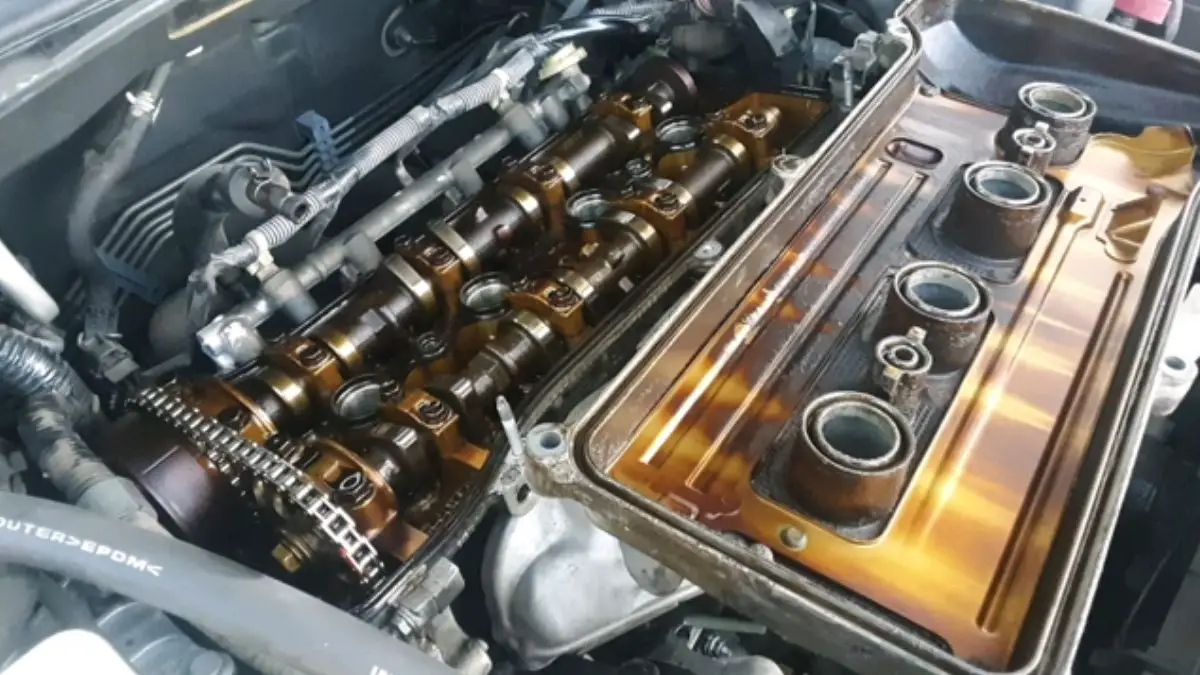The valve cover gasket is a flexible, steel-reinforced rubber sheet that forms a seal between the valve cover and engine block. The gasket prevents oil from seeping into the spark plug housing. The valve cover gaskets are vital to vehicle functionality – they prevent oil from leaking all over the cylinder head and the engine block.
A faulty valve cover gaskets can cause many things to happen with your car however, it will not cause a low oil pressure.
Table of Contents
What can a leaking valve cover gasket cause?
A leaking valve cover gasket can cause the following:
- Engine is running rough – One of the most common symptoms of a valve cover gasket is engine running rough. The engine tends to run rougher at idle and when you accelerate, which may be accompanied by white smoke in the exhaust.
- Oil Leak – One of the most obvious signs that your valve cover gasket needs to be replaced is oil on your driveway or oil that is being deposited on your engine parts.
- Oil in Spark Plugs – One of the tell-tale signs that an engine is burning a lot oil and you have a valve cover gasket problem is if you find oil in the spark plugs. An excess of oil being burned will often get passed through to where it needs to go in the cylinder head and when it does, it will end up in the spark plugs.
- White Smoke in Exhaust – One of the tell-tale signs that an engine is burning a lot of oil and you have a valve cover gasket problem is if you find oil in the spark plugs or white smoke in your exhaust. White smoke typically indicates that your engine is burning oil.
- Engine Misfires – One of the tell-tale signs that your valve cover gasket needs to be replaced is if you are experiencing misfires. Misfires can occur in any number of parts of your engine, but they are typically caused by oil leaking onto wiring or spark plugs.
How long can you drive with a valve cover gasket leak?
Driving with a valve cover gasket that is leaking only a small amount of oil, or oil that is dripping onto your driveway rather than hot engine parts, is safe for the short term. While driving with any kind of oil leak is not ideal, it’s okay to drive your car if you have no other mode of transportation available.
In some cases, a valve cover gasket can leak enough oil that it drips onto the hot exhaust manifold. When this happens, a burning smell and/or white smoke from the tailpipe indicate a major leak. In this case, do not drive your car until you have replaced the leaking valve cover gasket.
However, if you must drive your car with a valve cover gasket leak, you should be aware of the following short term effects on your engine:
- An oil leak affects engine performance. Oil powers moving parts such as pistons and turbochargers. To compensate for reduced power, you may need to use higher gears on steep hills. This can cause problems if you need to use lower gears on steep hills, such as pulling out onto the highway.
- Oil is also an important factor in protecting your engine from corrosion. Driving through standing water during a rainstorm can lead to problems with metal parts corroding and seizing together if there is no oil left protecting them.


